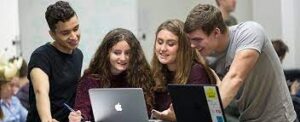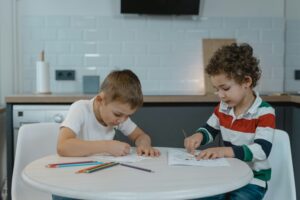Introduction:
Educational psychology is a field that delves into the intricate interplay between learning, cognition, and human behavior within educational settings. This comprehensive guide explores the foundational principles, theories, applications, and the profound impact of educational psychology on shaping effective teaching and learning environments.
Defining Educational Psychology: Unlocking the Science of Learning:
Define educational psychology as the study of how people learn and the application of psychological principles to enhance educational practices. Emphasize its role in understanding the complexities of the learning process and optimizing educational outcomes.
Historical Evolution of Educational Psychology: Tracing the Roots of Understanding:
Explore the historical development of educational psychology, from its roots in philosophy and early psychological theories to its emergence as a distinct discipline. Highlight key figures and milestones that have shaped the field.
Foundational Theories in Educational Psychology: Building a Framework for Learning:
Examine foundational theories in educational psychology, including behaviorism, cognitivism, constructivism, and socio-cultural perspectives. Discuss how these theories contribute to our understanding of learning processes and instructional design.
Cognitive Development: Nurturing Intellectual Growth:
Delve into the field of cognitive development within educational psychology. Explore theories such as Piaget’s stages of cognitive development and Vygotsky’s socio-cultural theory, emphasizing their implications for teaching and learning.
Motivation and Learning: Igniting the Flame of Engagement:
Discuss the role of motivation in educational psychology, exploring theories such as Maslow’s hierarchy of needs and Deci and Ryan’s self-determination theory. Highlight strategies for fostering intrinsic motivation and engagement in educational settings.
Social and Emotional Learning: Fostering Well-Being in Education:
Explore the importance of social and emotional learning (SEL) within educational psychology. Discuss how understanding and promoting emotional intelligence contribute to creating supportive and nurturing learning environments.
Learning Styles and Individual Differences: Tailoring Education to Diverse Needs:
Examine the concept of learning styles and the recognition of individual differences in educational psychology. Discuss how educators can adapt their teaching methods to accommodate diverse learning preferences and strengths.
Assessment and Evaluation: Gauging Educational Progress:
Discuss the role of assessment and evaluation in educational psychology, emphasizing the importance of fair and effective evaluation methods. Explore formative and summative assessment strategies and their impact on student learning.
Classroom Management: Cultivating Positive Learning Environments:
Explore the principles of classroom management within educational psychology. Discuss strategies for creating a positive and inclusive classroom culture, addressing behavior challenges, and fostering a conducive learning environment.
Educational Interventions and Special Education: Meeting Diverse Needs:
Discuss educational interventions and their application in special education. Explore how educational psychology informs the design of interventions to support students with diverse learning needs, including those with disabilities.
Technology and Educational Psychology: Integrating Innovation for Learning:
Examine the role of technology in educational psychology. Discuss how digital tools and innovations enhance the learning experience, facilitate personalized learning, and provide new avenues for educational research.
Conclusion: Shaping the Future of Education through Educational Psychology:
Conclude by highlighting the transformative impact of educational psychology on the field of education. Emphasize its ongoing role in shaping effective teaching practices, creating inclusive learning environments, and contributing to the continual improvement of educational experiences for learners of all ages.






